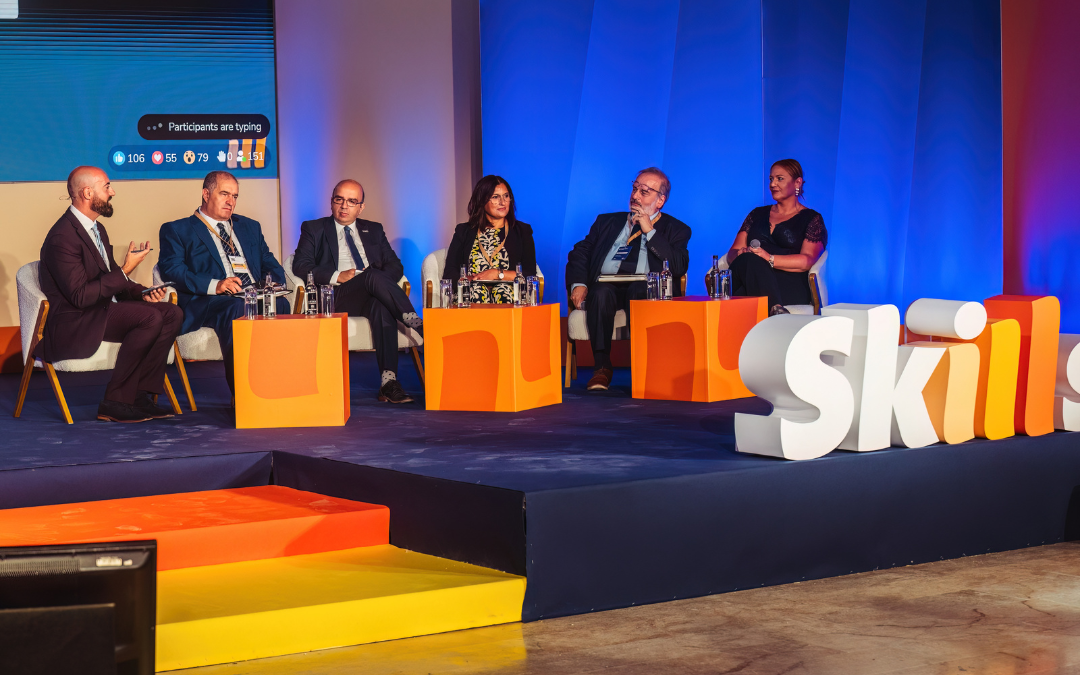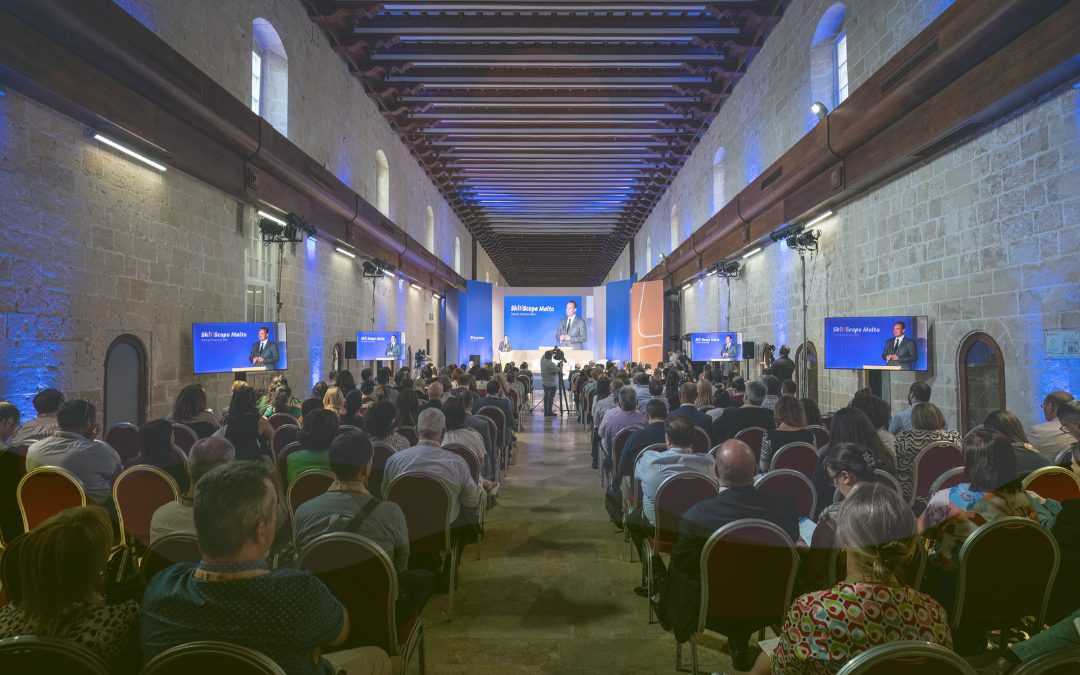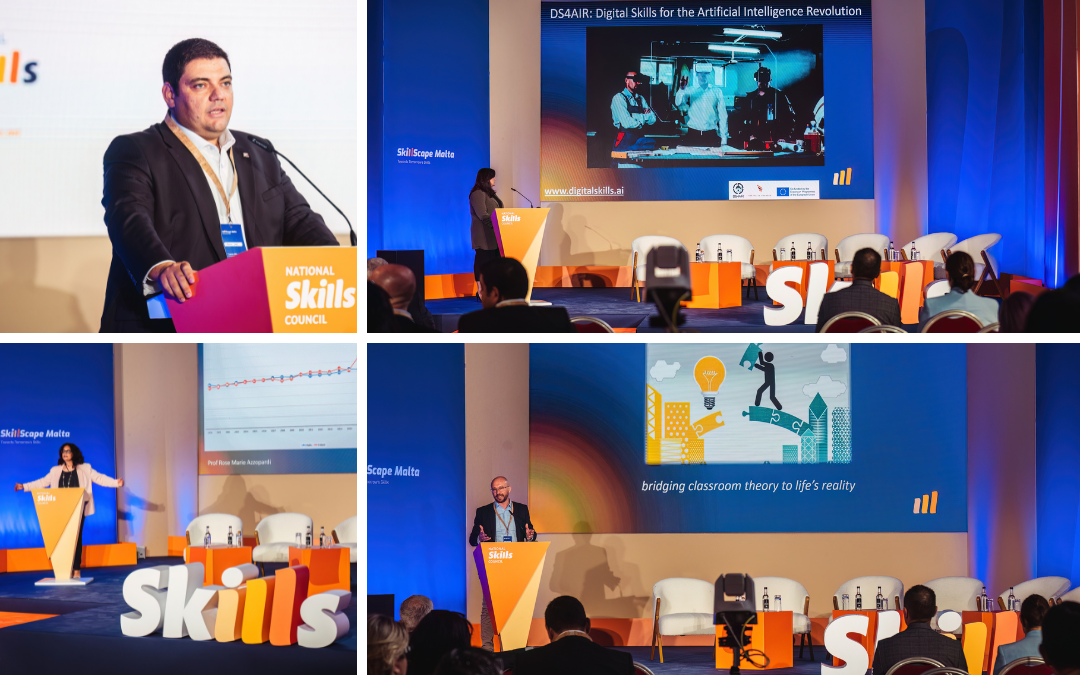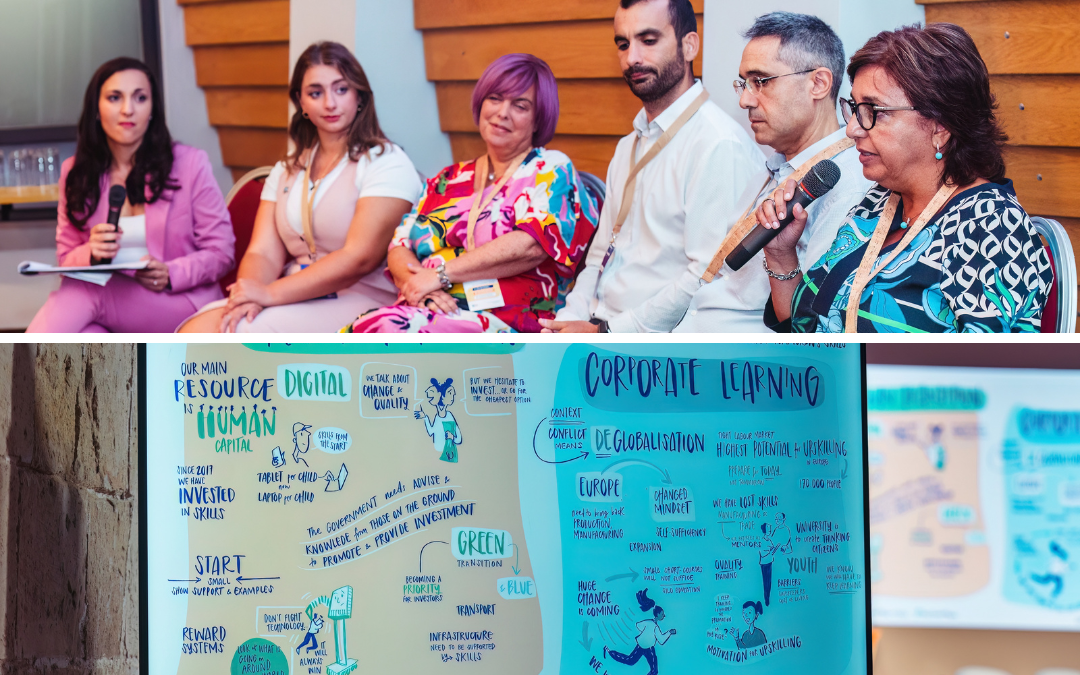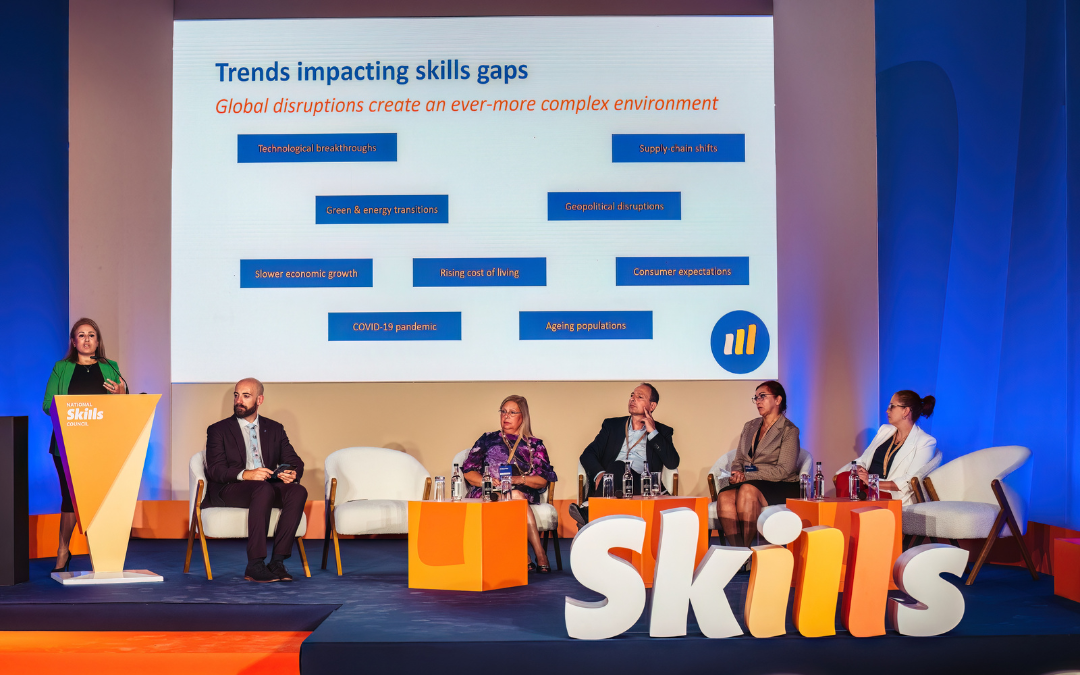In short, the highly packed SkillScape Malta conference programme promised rich content distributed across five panel discussions with influential speakers. Five or six of them took the stage in 30-minute slots and two rounds. First lesson: Too much!
Right from the start, we were greeted by video content with powerful messages that moved and stimulated thought and curiosity (below is an example of a video on the future of work). Lesson two: Pervasive music, striking visuals, few words, but unforgettable words – great!
Four keynote speeches by influential speakers of different lengths (25, 30 or 45 minutes) opened up significant topics, yet each lacked audience engagement. Lesson three: To better combine the two!
Towards the end, when we were exhausted from the many words spoken, there were 15 (!) 2-minute presentations showcasing good practice examples. Even if everyone stuck to the time limit, it was too much, thus echoing the first lesson!
Finally, there was the presentation of six well-founded recommendations to policymakers, prepared in advance and mostly well supported by a full day’s events. Lesson four: Excellent; summarising key points is truly worthwhile.
Lesson five: the graphic illustration is still relevant and actually represents the graphic harvest.
Now, to the content, which strongly resembled what we discussed in June at our Adult Education Colloquium, the EYS launch event for Slovenia. At the maltese event, too, they brought together policymakers (education, labour, innovation, finance, sustainability, etc.), economists, social partners, practitioners and others. The third EYS objective, balancing the aspirations of individuals with the needs of the labour market and the skills-first approach, was discussed, as was the future of education and innovative didactic approaches, as well as the future of work, work-based learning, and green and digital transitions.
Finally, we listened to a lecture on the connection between emotions and learning. We agreed with the speaker, who joined us remotely from Missouri, USA: ‘Positive emotions attract attention, motivate us, support long-term working memory and guide our actions. We genuinely engage only with things that deeply resonate with us.’ But we were left without answers (at least for the moment) about two things: how to maximise such positive emotions (and not give in to negative ones) and how to get learners to be more engaged.
The presentations were skillfully intertwined with information about the future of work and the necessary skills from two sources: the report of the World Economic Forum Future of Work 2023 and the LinkedIn Economic Graph: Skills-First: Reimagining the Labour Market and Breaking Down Barriers. Perhaps some of this will help you to justify your moves!?
And my personal insight: it was the right thing to do – in spite of my time pressure – to jump to Malta and enrich myself in both or even more ways. At some point, I also realised that a considerable number of participants (around 200) were actively involved in the programme – in one capacity or another. Participation has thus gained meaning.
Zvonka Pangerc Pahernik, MSc (zvonka.pangerc@acs.si), SIAE

